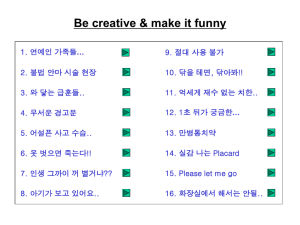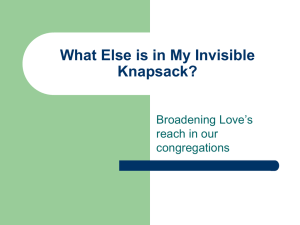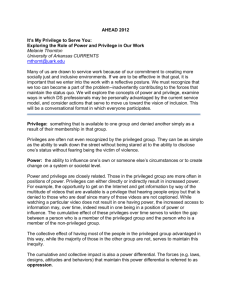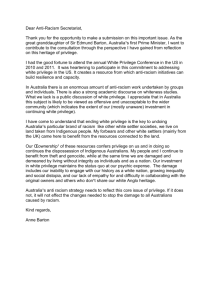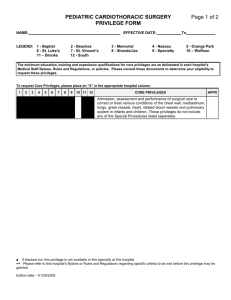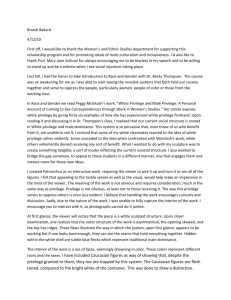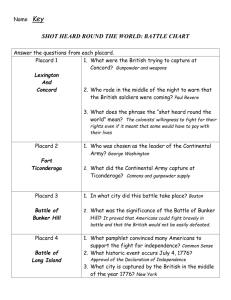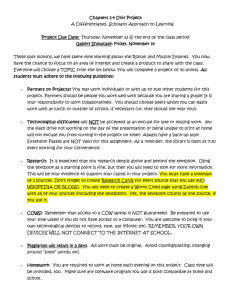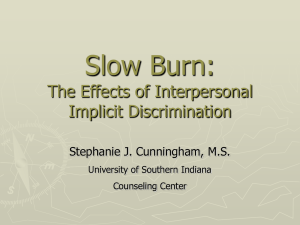Parli-Pro Guide
advertisement
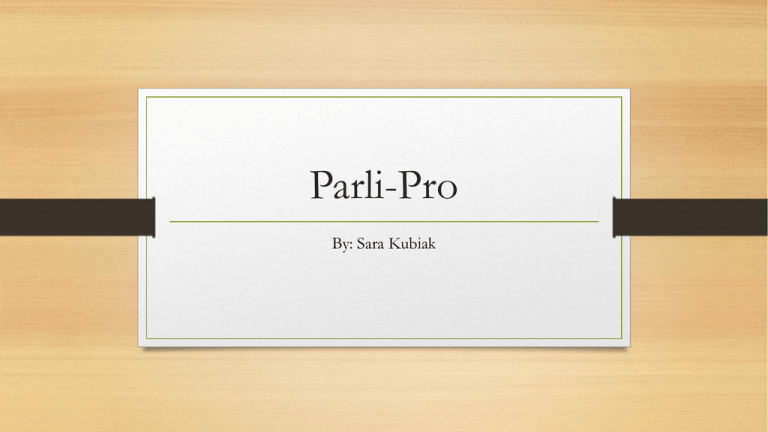
Parli-Pro By: Sara Kubiak Why We Use Parli-Pro • Streamlines the Meeting • Ensures Everyone has a Chance to Speak • Maintains Order Hello, My name is Watson. And I’m Reginald Von Bartlesby the III (Reggie for short), We’re here to help. General Guidelines • Placard Arms • Raise your placard to be put on the Speakers List • Wait to be recognized by the Chair before speaking Placard Arms are Arms Extended Above Your Head with Your Elbows Locked. Remember: Elbows to Ears. I Move… • Used to Start a Main Motion • Be Specific • Be Clear Main Motions Require a Second. Remember to Keep it Simple. I Second. • Main Motions Require Seconds. • Without a second the motion will die. A second shows that you support a motion. Discussion • Only the motion on the floor can be discussed. • Remember to say “I yield” when you are done speaking. • Remember to phrase your statement as “(your institution) feels/thinks/believes/etc. that ...”. If your point has already been stated you can “Yield to Redundancy”. This helps keep the meeting moving. I Move to Amend the Motion by… • Used to Amend a Motion • Amendments • Discuss Only the Amendment, Not the Main Motion Itself Amendments Also Require a Second. It is helpful to Write Out Amendments. This Ensures Accuracy. I Call the Question • Informal way to request a vote • President will ask for any objections. No Seconds. This Streamlines the Process from Discussion to Voting. I Object. • Requested by the President • When you object a motion, you will have a chance to speak on it. • State why you oppose. • If you have a point to add, state that you have a point to add, not the actual point. An Example would be: I have something to Say Or: There’s More to Say on This Topic. Abstain • Used for if you don’t want your vote to count • Also if you are directly affected by the motion • Or other moral dilemmas. Don’t be afraid to abstain. No one will ask you why. Points • Three Main Points • Point of Personal Privilege • Point of Information • Point of Order These are used when it’s not practical to wait your turn. You may interrupt the speaker, but please be polite about it. Point of Personal Privilege • Used when there is something preventing you from fulfilling your role as a voice of your schools. • Examples include: • Can’t hear the speaker • The room is so hot you’re going to pass out Point of Personal Privilege is used when you can’t hear what someone is saying. Point of Personal Privilege! I can’t hear what you are saying. Point of Information • Used when you have a question about what is going on. • Or when you are answering a Request of Information Point of Information: Where are we? Point of Information: We are in a PowerPoint. Point of Order • Used when Parliamentary Procedure is not being used properly. • Used when something is going against our governing documents. I move to let only the WCC’s have speaking rights. Point of Order: That goes against our governing documents. I Move to Caucus with Our … for … Minutes • Co-CC’s: Discuss the motion with your Co-CC’s. • Institution: Discuss the Motion with your Institution (Co-CC, Advisor, and RHO President) • Boardroom is still closed I Move to Recess until ____ • Used for longer breaks • Typically to adjourn the meeting for the day, but can be used for a couple of hours. • I.e. Breakout Sessions • For Shorter breaks you can use “I move to Groove for _____ Minutes” Hey Reggie, which do I use if I need to use the restroom? Use Move to Groove, my dear Watson. So Moved. • When the President says that they will entertain a motion for …. • You have the ability to say ‘So Moved’, which means you are making the motion the president just said they would accept. I will now entertain a motion to come back from extinction. So Moved! General Notes • Remember to Direct all statements to the President (unless you are a asking a question to the presenter). • Business stays in the boardroom. • Do not share discussion, election results, or anything presented in the board room. That means no texting or Facebooking during boardroom. The Most Important Thing to Remember: • We’re all just learning and even if you don’t know exactly how to say something, raise your hand and we’ll help you through it. Remember: Take Chances, Make Mistakes and Have Fun.
